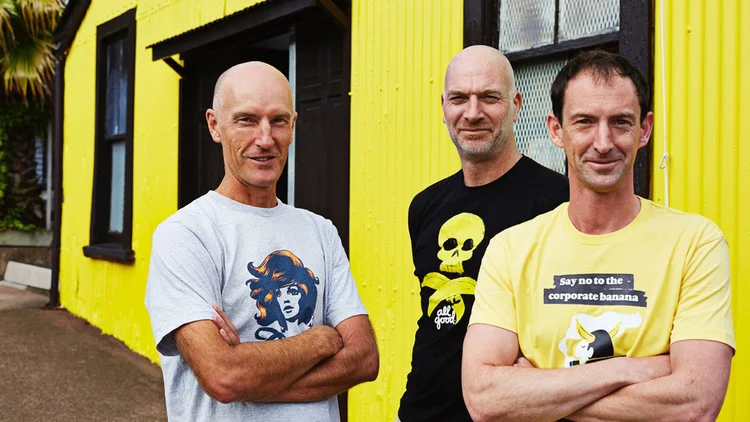12. Chain
Proposed by Whitney Johnson.
If you know what voice-over internet protocol (VOIP) is, then you’ll have a pretty good sense of what money-over IP (MOIP) is. The Internet’s ability to carry voice data massively disrupted the Telcos, with cheaper and better calls that don’t require a landline, and the same thing is going to happen with the creation of truly digital currencies (of which the crypto-currency Bitcoin is just the most infamous so far).
Today, if I buy a share of Tesla stock, there’s a promise made for an exchange in the near future. But the money has to go through an institution, which takes time and adds fees—like $7 per trade. What if I could buy the stock directly from Tesla and eliminate the time and the institution’s fee? Or what if my Starbucks loyalty points could be traded instantly, with effectively zero cost, creating an alternative currency that could work outside of Starbucks, between friends. Or what if I could tip my waiter via a tweet? Or, as a brand owner, offer an immediately redeemable incentive to purchase to anyone posting a picture of my display at the supermarket? All of this becomes far easier, cheaper, faster in a world of truly digital currencies.
It’s this world that Chain.com—an enterprise block chain platform—is going to build, in partnership with some of the world’s largest financial institutions. In an interview on the delightfully geeky podcast a16z, founder Adam Ludwin noted that even a year ago, few financial institutions had a formal block chain strategy (a block chain is a distributed database of the records of digital currency transactions). Now they all do, even if that strategy is to do nothing, it has at least been arrived at consciously.
Wall Street sees the writing on the wall. This is its own Kodak moment—a major structural shift in how the industry operates, that will play out for decades to come. And there’s a huge first-mover advantage here. He who builds the network first generates the fastest network effect, with the potential to become the Uber, Airbnb, or Google of the category.
So despite the fact that a financial institution that commits to operating on a block chain inevitably cannibalizes itself, the thinking seems to be: better to eat your own business than be prey for someone else. This is why Citi, NASDAQ and Visa have not only partnered with Chain, but have invested as well.
“When people are moving new money in new ways, trusted brands will get the most business. ”
When people are moving new money in new ways, trusted brands will get the most business. Shame, then, that trust in Wall Street is in such short supply. Maybe the emergence of a new operating system for money will force the industry to think a lot harder about its reputation and behaviours. And perhaps this, in turn, will encourage the first movers among brands to develop their own currencies with them, too.
Thanks to Whitney Johnson, author of the critically-acclaimed Disrupt Yourself, and a former Wall Street equity analyst for getting us to think harder about digital currencies. Follow Whitney on Twitter @johnsonwhitney




















For radical transparency.